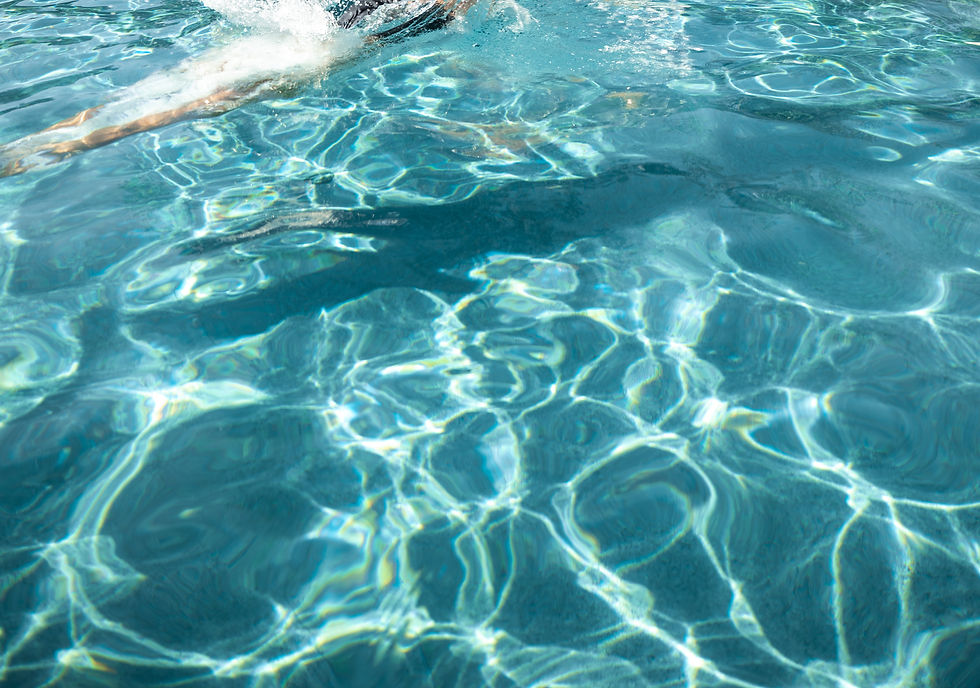Natural vs Traditional Pools: What’s the Difference?
- iranussb
- Oct 9, 2025
- 4 min read
Choosing the right swimming pool is an important decision. Today, homeowners can choose between traditional chlorine pools, plant-based natural pools, and newer Living Water solutions such as those developed by KmoBateva. Each option offers a different balance of health, sustainability, cost, and aesthetics.

Filtration and Water Quality
How Living Water Systems Improve Pool Filtration and Clarity
Traditional Pools: Use chlorine and other chemicals to kill bacteria and algae. Filtration is purely mechanical, so chemicals must be added regularly.

Plant-Based Natural Pools: Rely on regeneration zones filled with aquatic plants. Beneficial bacteria and roots absorb nutrients, helping to keep water balanced. However, plant basins require space and tend to clog after several years, creating extra maintenance.

KmoBateva Living Water Pools: Operate without plants or chemicals, combining biological filtration, UV treatment, and advanced hydraulics. The system circulates water at low pressure, enhancing oxygen exposure and improving clarity, while maintaining a modern pool look.

The Bottom Line: Plant-based pools mimic nature but are harder to maintain. KmoBateva uses nature-inspired technology to provide stable, chemical-free water in a compact system.
Chemicals vs. Biology: The Health Impact
Understanding Health Benefits of Chemical-Free Pools
Traditional Pools: Chlorine can cause skin and eye irritation, odors, and respiratory issues.
Plant-Based Natural Pools: Free of chemicals, but microbial balance may fluctuate if maintenance slips.
KmoBateva Pools: Provide chemical-free water that feels soft and gentle. In certain lab conditions, water quality has even reached drinking thresholds - though any use for drinking is strictly at the owner’s responsibility. The systems are designed and certified for swimming use.
Cost and Maintenance: A Long-Term View
Evaluating Pool Costs, Energy Efficiency, and Long-Term Maintenance
Traditional Pools: Lower initial cost, but high ongoing spending on chemicals, electricity, and equipment repairs caused by corrosion.
Plant-Based Natural Pools: High construction costs, plus long-term expenses related to plant basin upkeep.
KmoBateva Pools: Require a higher upfront investment, because they are built with premium components and extra piping to ensure optimal low-pressure hydraulics. This complexity ensures performance, reliability, and stability for years to come. While the systems cost more initially, the investment pays off in efficiency, durability, and water quality over the long term.
Natural pool vs traditional pool, The Bottom Line: Upfront costs are higher with KmoBateva systems, but they deliver long-lasting performance and lower operational expenses by avoiding chemicals and reducing energy use.
Aesthetic and Design Impact
Traditional Pools: Offer a clean but artificial appearance.
Plant-Based Natural Pools: Blend with landscapes but resemble ponds, which doesn’t suit every home.
KmoBateva Pools: Deliver crystal-clear water and a contemporary look while offering a natural swimming experience.
The Benefits of Low-Pressure Operation
How Low-Pressure Pool Hydraulics Enhance Efficiency and Water Quality
Unlike most Living Water solutions, KmoBateva specializes in low-pressure hydraulics, which provide several key advantages:
1. Energy Efficiency - It consumes far less electricity compared to high-pressure systems.
2. Improved Water Quality - Low pressure increases oxygen exposure, supporting a more stable biological balance.
3. Extended Equipment Life - Pumps and filters suffer less strain, lasting longer.
4. Faster Clarity Recovery - The ability to circulate the entire pool quickly under low pressure helps restore clear water after heavy swimmer loads.
This combination makes low-pressure operation a defining advantage of KmoBateva’s Living Water pools.
Regulations: What to Consider
Traditional Pools: Governed by well-established chemical standards.
Plant-Based Natural Pools: Regulations vary widely, often adapted from wastewater treatment frameworks.
KmoBateva Pools: In most countries, there are no regulatory barriers for private residential pools. For commercial settings - such as hospitality, wellness, or water-treatment facilities - requirements depend on local regulations, and operators may need additional approvals.
Final Thoughts
natural pool vs traditional pool: Choosing the Best Pool Type
Traditional Pools are familiar but rely on chemicals.
Plant-Based Natural Pools are chemical-free but require large areas and heavy upkeep.
KmoBateva Living Water Pools are a modern alternative: more expensive upfront due to advanced hydraulics and premium components, but rewarding in long-term stability, clarity, and reduced operating costs.
Each solution has merits. For those who want chemical-free water with the aesthetics of a modern pool and the performance of advanced engineering, low-pressure Living Water systems represent a forward-looking choice.
Frequently Asked Questions
Are chemical-free pools safe? Yes. Chemical-free pools use natural or biological filtration methods instead of chlorine. Safety depends on proper system design and regular maintenance. Modern engineered systems, such as KmoBateva’s Living Water pools, are specifically designed to ensure stable, clear, and safe swimming conditions without chemicals.
Do natural pools need plants? Not always. Traditional natural pools use plants in regeneration zones to help clean the water, but this requires space and regular upkeep. KmoBateva’s systems achieve the same balance with advanced low-pressure hydraulics and biological filtration—eliminating the need for plants.
What makes KmoBateva different from other natural pools? KmoBateva specializes in low-pressure operation, which reduces energy consumption, extends equipment life, and improves water quality. Low-pressure hydraulics also allow faster water turnover, restoring clarity quickly after heavy swimmer loads.
Are KmoBateva pools more expensive? Yes, the initial investment is higher. The systems use premium components and require additional piping for optimal hydraulics. However, this investment pays off in the long run through lower operating costs, improved reliability, and consistently high water quality.
Can I drink the water in a KmoBateva pool? The systems are designed and certified for swimming use. In some cases, water quality has reached drinking-water standards in laboratory tests, but using pool water for drinking requires strict and ongoing diligence and remains the owner’s responsibility alone.
Is it legal to install a KmoBateva pool? In most countries, there are no regulatory issues for private residential installations. For commercial uses - such as hotels, spas, or wellness centers - requirements vary depending on local regulations. Always check with local authorities before building.


